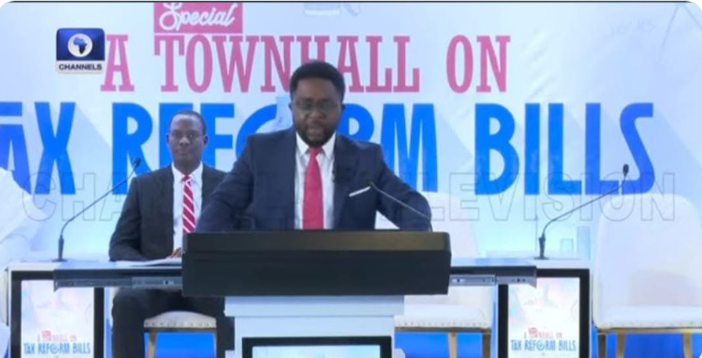By Temitope Ajayi
HUMAN BEINGS naturally resist change. When comfortable where we are, we find it extremely difficult to embrace an uncharted path or seek greater glory.
Those who are risk averse often don’t want to venture out to embrace unfamiliar territories no matter how tempting the possible reward may appear.
We should not, however, be so imprisoned by the fear of the unknown not to explore new possibilities because we find our present circumstances satisfying enough.
Since the public debate around the Tax Reform Bills started, the strongest push back against it has come largely from the north.
Borno State Governor, Professor Babagana Zulum has become the face of the resistance for the reasons he has pushed forward, even when some of them didn’t speak to the facts and provisions of the bills.
If Governor Zulum and other voices of resistance who think the states will be shortchanged had actually taken time to examine the four executive Bills, they will see how progressive and transformative the Bills are.
They will also discern the thought behind them which is primarily to make both the Federal and sub-nationals fiscally stronger and buoyant.
In his public presentations and the most recent being the Channels TV Town Hall moderated by Seun Okinbaloye Monday evening, Chairman of Presidential Committee on Tax and Fiscal Policy Reforms, Taiwo Oyedele and other panelists again made convincing arguments for the passage of the Bills before the National Assembly.
Here are the 10 ways the Tax Bills will serve the states better and enhance their capacity to earn more revenue:
- The federal government will cede 5% out of its current 15% share of VAT revenue to states.
- The Bills will transfer income from the Electronic Money Transfer levy exclusively to states as part of stamp duties.
- The Bills seek to repeal obsolete stamp duties law and re-enactment of a simplified law to enhance the revenue for states.
- Under the new dispensation the Tax Bills will usher in, states will be entitled to the tax of Limited Liability Partnerships.
- When passed by the National Assembly, the Tax Bills will enable the state government to enjoy tax exemption on their bonds to be at par with federal government bonds.
- Under the proposed tax reform, states will enjoy a more equitable model for VAT attribution and distribution that will lead to higher VAT income.
- Integrated tax administration will provide tax intelligence to states, strengthen capacity development and collaboration, and scope of Tax Appeal Tribunal to cover taxpayer disputes on state taxes.
- The proposed tax laws grant powers for Accountant General of the Federation to deduct taxes unremitted by a government or MDA and pay to the beneficiary sub-national government on personal income tax of workers of federal institutions in states.
- Framework to grant autonomy for states internal revenue service and enhanced Joint Revenue Board to promote collaborative fiscal federalism.
- Legal framework for taxation of lottery and gaming and introduction of withholding tax for the benefit of states.
From the aforementioned, it is clear that the Tax Bills are not in any way injurious to the states. Apart from streamlining the tax system in Nigeria and catalysing economic output, the tax and fiscal policy reforms provide incentives for states to become economic powerhouses.
The challenge for governors will be to put on their thinking cap by investing in manpower and critical social and physical infrastructure in their states that will support businesses and socio-economic activities to flourish.
Ajayi is Senior Special Assistant to the President on Media and Publicity





